All-In [29968]
TigerPulse: 100%
Posts: 8869
Joined: 10/31/10
|
Religious Pron: The End Times, 6 of ?

3
Apr 28, 2024, 2:30 AM
|
|



After taking on the scary-large Books of Isaiah and Ezekiel, we now exorcise a lot of text and move to the smaller works of Malachi and Joel.
 
Smaller books are sometimes tougher to date because they just don’t have a lot of clues in them. But there are a few things we can look for to help us figure out when the Book of Malachi and the Book of Joel were written.

The arrival of Cyrus the Great of Persia was a happy day in Jewish history, but it wasn’t the end of their history by a long shot. That’s because the next great power to roll through the Middle East was Greece, under a guy named Alexander the Great. You might have heard of him.
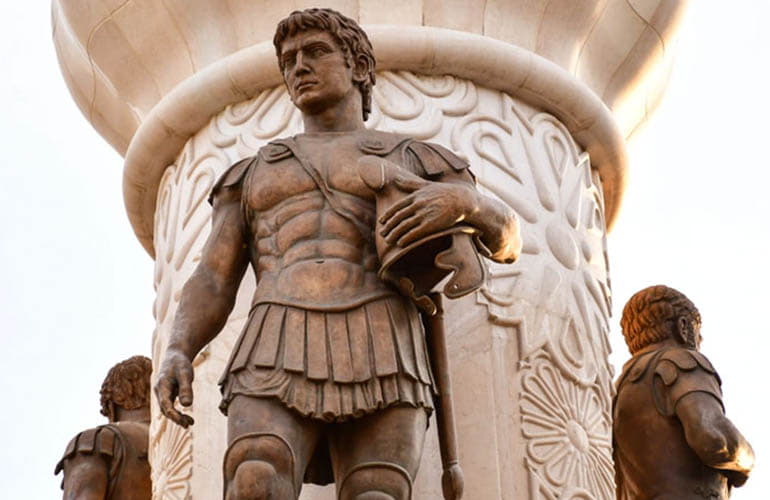
Alexander has a great history to go along with his name. He was tutored by Aristotle, and had to flee his own home as a youth after insulting his dad, Phillip, at a dinner party.
In front of all Phillip’s friends, Alex said that his sloppy drunk dad had no chance of triumphantly walking his army over the earth, because he couldn’t even walk across the room in his current state. Kids say the darnedest things!

Alex escaped that incident with his life and his mom, and Phillip was later assassinated by his own bodyguard. Alex then inherited his dad’s throne when he was 20 years old. Just a sophomore. He went on to win 20 consecutive battles without a loss, and to rule the known world by age 30.
Even Caesar is said to have cried like a baby when he lamented that not only could he never accomplish what Alexander accomplished, he couldn’t do it that young. He was already too old.

After Alexander conquered Greece, he met with a famous Greek philosopher and said the new master of Greece would like to grant the revered old thinker a wish. The philosopher said “My wish is that you get off my lawn.”

Well, not exactly. But he did say “My wish is that you get out of my light.”
Alexander meets Diogenes. “Move a little to the left, sonny. You’re ruining my tan.”

Alexander was so impressed with the old guy’s cajones that he said “If I weren’t me, THAT’s the guy I’d wanna be like. He don’t give AF.” And moved out of his light. But all that’s getting a bit ahead of ourselves.
In relation to dating Biblical books, the Persians came through the Levant and ancient Israel in the 500’s BCE, and the Greeks in the 300’s BCE.
So to time-date texts, one only needs to look for references to those two civilizations, the Persians, and the Greeks.

For instance, Malachi is presumed to be written about 430 BCE. One reason for that is Malachi 1:8
“When you sacrifice lame or diseased animals, is that not wrong? Try offering them to your governor! Would he be pleased with you? says the Lord Almighty.”
 
 
One or two verses may not seem like much to work with, unless one knows that the Persians set up governorships called satraps, not kingships, in their occupied lands. So when one sees the word ‘governor’, that’s like a Persian siren going off.

Another clue is the Temple, which was reconstructed in about 516 BCE. So, depending on whether the Hebrews are lamenting the Temple being gone, or celebrating it being rebuilt, we can tell if the date is before or after 516 BCE.
Here, Zerubbabel, the Jewish governor appointed by Persia, rebuilds the Temple. You can read all about it in Haggai.
1:1 “In the second year of King Darius, the word of the Lord came through the prophet Haggai to Zerubbabel, governor of Judah, and to Joshua the high priest:”

In Malachi, Yahweh complains that crappy sacrifices, like 7-legged lambs, are being offered to him at his spiffy new Temple. He also warns that the priests and the people are slackers on the Law, and what’s worse, they’re skimming from the Lord worse than mobsters in a casino.
Malachi 3:8 “But you ask, ‘How are we robbing you?’ In tithes and offerings.” [said God]

All of those are Temple type things, so putting all of those clues together; Temples, governors, and skimming priests, leads to the Persian period. And so 430ish BCE seems like a reasonable date for Malachi.
 
 
But as always, we’re here because of Revelation. And Malachi continues the contemporaneous Jewish understanding of the End Time, including the Remnant, trial and judgement, and burning hellfire. All pretty typical stuff by now.
Malachi 3:5 “So I will come to put you on trial.”
Malachi 4:4 “Surely the day is coming; it will burn like a furnace.

We also find out that God has a soft spot in his heart for the working man and for immigrants. Because among the things man will be judged on are these:
Malachi 3:5 “I [God] will be quick to testify…against those who defraud laborers of their wages, … and deprive the foreigners among you of justice…” says the Lord Almighty.


Malachi also adds something new to the mix, and it’s kinda big. The End Time will come with a warning messenger. Someone we haven’t heard from since King Ahab and his prophet Obadiah, way back in 850 BCE:
Malachi 4:5 “See, I will send the prophet Elijah to you before that great and dreadful day of the Lord comes.”
Hank Williams, Sr. even sang a song about Poor Old Elijah.

Hank even bested Alexander, ruling the whole country world at the time of his death at age 29.

So when John the Baptist and Jesus are talking about Elijah and the “the one before me” and such, they may have gotten that impression from reading the same Book of Malachi that you do.
Cool.
The same as these descriptions about entering Jerusalem came from these prophets…
Ezekiel 43:4 “The glory of the Lord entered the temple through the gate facing east.”
Zechariah 9:9 “See, your king comes to you, righteous and victorious, lowly and riding on a donkey…”
Daughter Zion. Mount of Olives at bottom, and the East Gate is that blocky area in the wall, towards the right.
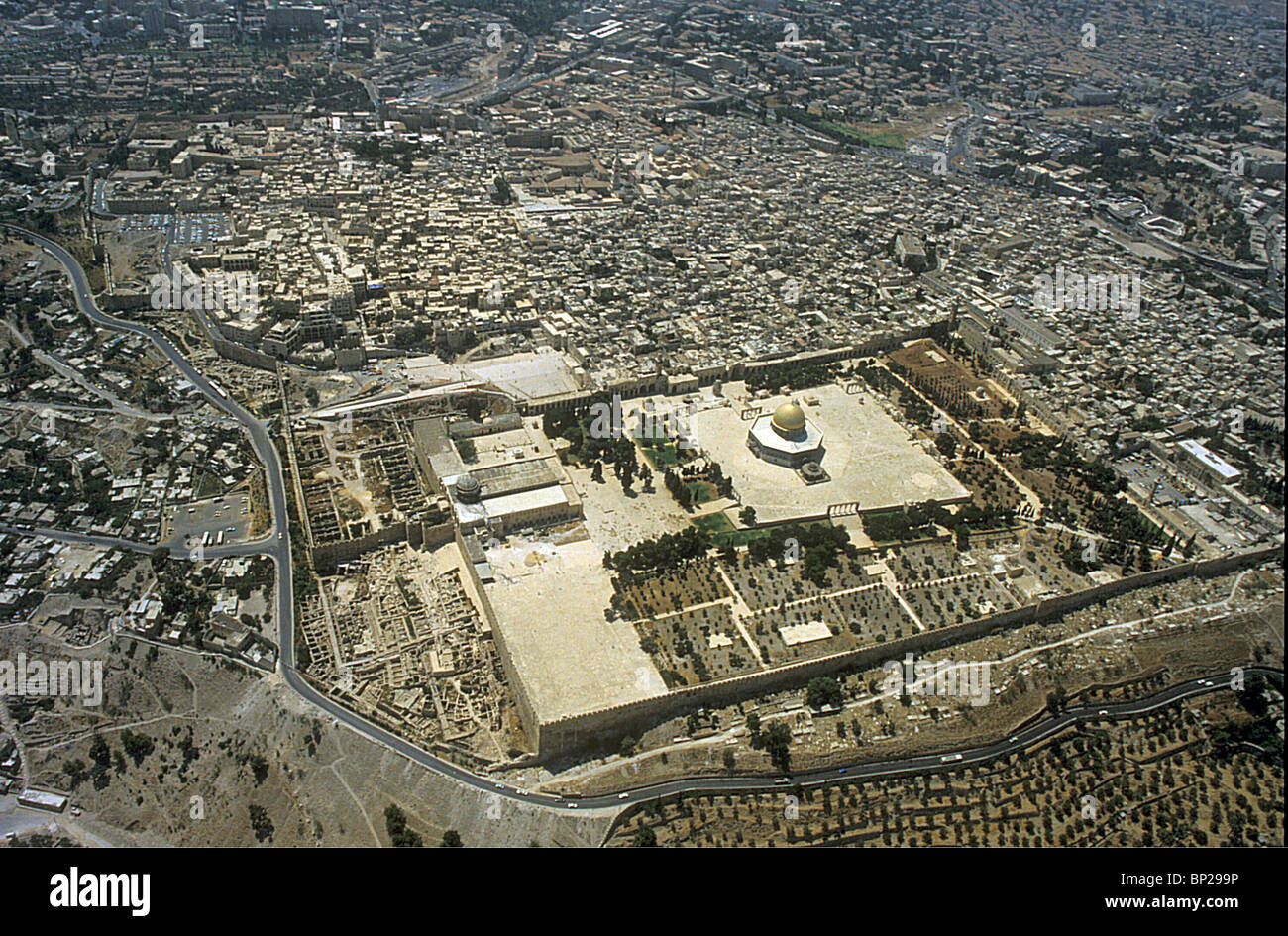
On down our time spectrum we have Joel. Joel is often dated to about 300 BCE, mainly because of this line:
Joel 3:6 “You sold the people of Judah and Jerusalem to the Greeks, that you might send them far from their homeland.”
If Greeks are involved, that means Alexander has passed through the area, and that places Joel sometime after 323 BCE.
 
Near the start of his 10-year campaign to rule the world, Alexander defeated King Darius of Persia (a few kings after Cyrus) at the Battle of Issus, right down the road from Tarsus, where Paul would be born 300 years later.
You may have also heard the term “Cutting the Gordian Knot.” It’s on the map, too.
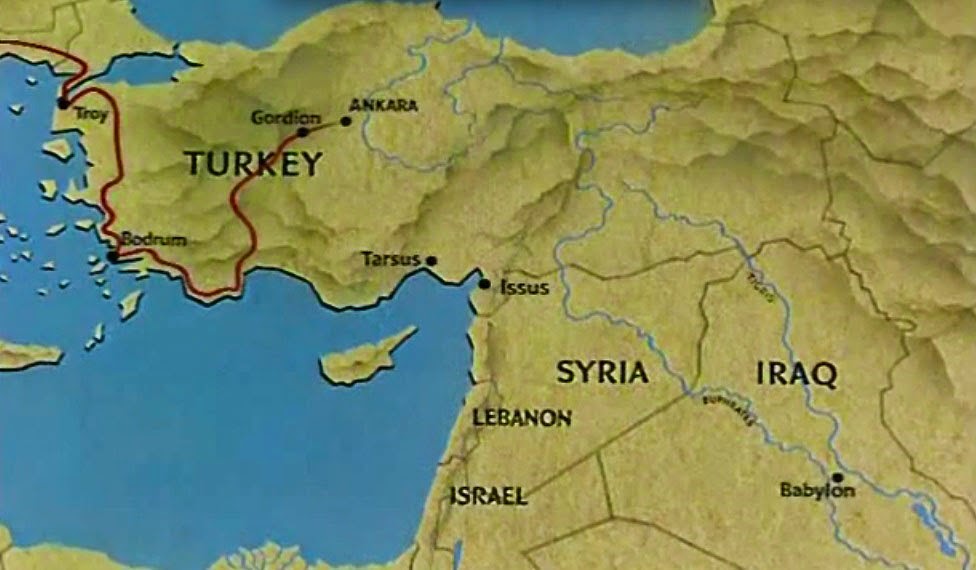
The Battle of Issus in three words? Knockout Right Punch. Greeks in Red.

The Battle of Issus was also kind of an upside-down battle. That is, the opponents came in from unexpected directions. At Gettysburg, for instance, the South actually entered the town from the north. And the Union army approached Gettysburg from the south, coming from Washington. At Issus, the Greeks came from the East, and the Persians from the West. Opposite of what one might have thought. Interesting, huh?

Once Alexander had routed the Persians, he moved down the coast to Tyre, and laid siege to it.
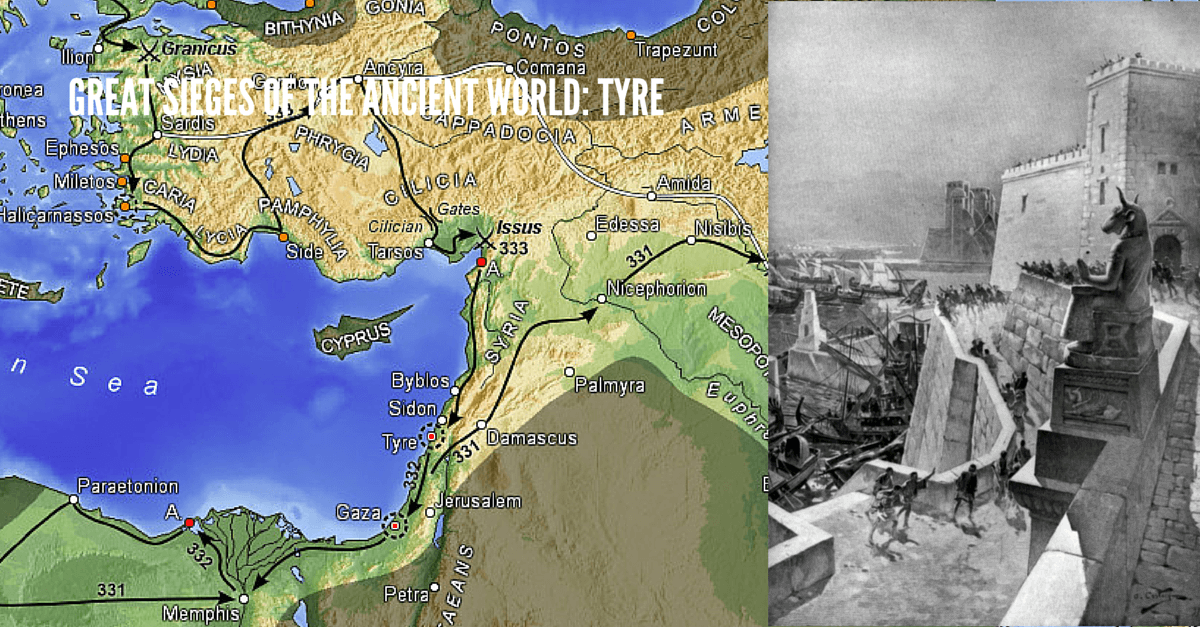
And the Bible speaks of just that event in the Book of Joel:
4 “Now what have you against me [God], Tyre and Sidon and all you regions of Philistia? …I will swiftly and speedily return on your own heads what you have done.
Alexander even had to build a bridge to get over to Tyre. Impressive Engineering.
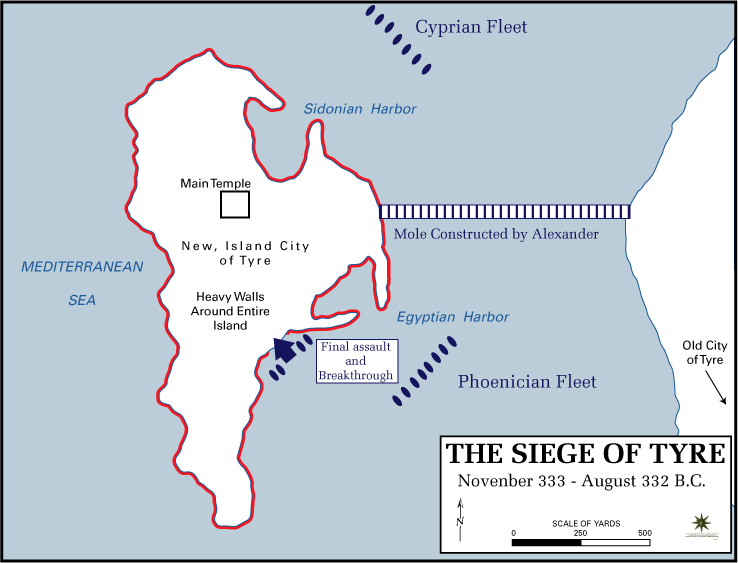

Alexander moved right on down the coast in a series of military victories. But although he was a very successful mortal, he wasn’t quite divine. Until he got to Egypt.
Alexander and his famous horse, Bucephalus, who could only be broken by Alexander.

Although the idea of being a son of god was foreign to the Jewish religion, it was not foreign to the Greek, or the Egyptian religions. Poor wife Hera.

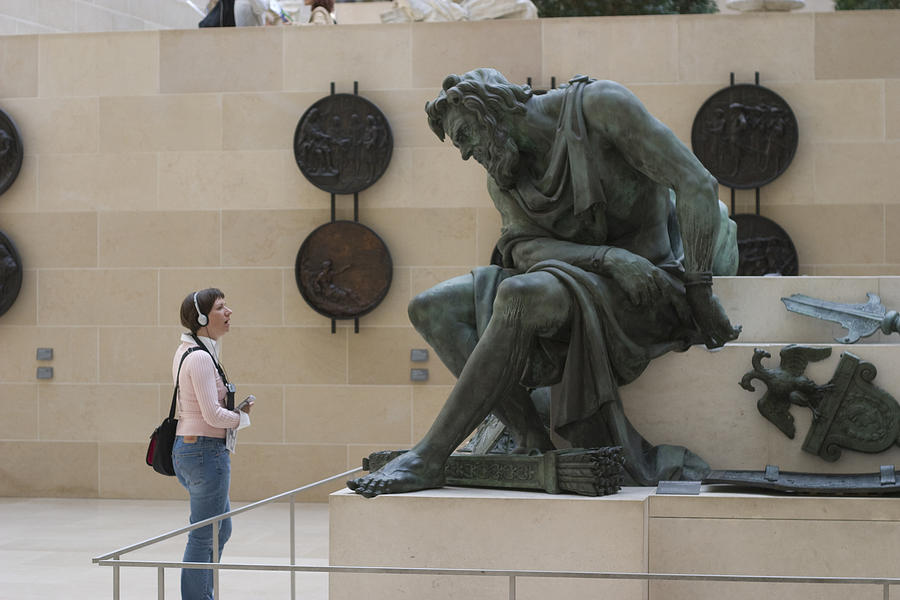
And so Alexander went to the Priests of the Cult of Ammon, out in the Egyptian desert at the Oasis of Siwa.

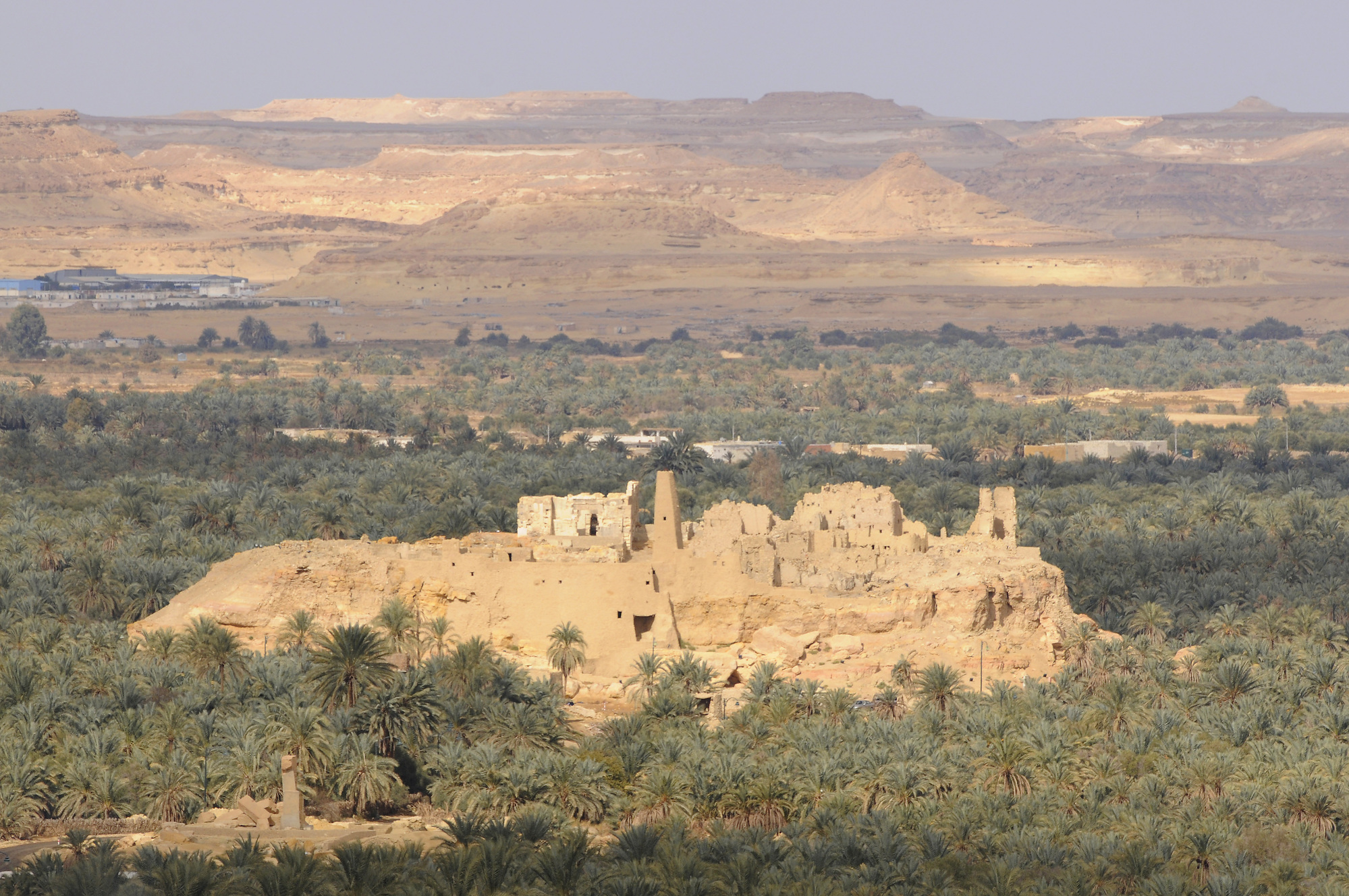

It was at Siwa that everyone realized that Alexander’s past was all a huge misunderstanding, and that Alexander was actually the son of a God all along. It was just that no one realized it till he visited the priests of Siwa.
Siwa Oasis
 
So, the priests declared Alexander to be divine. In return for their insight, Alexander built Egypt a nice Greek city, named after himself.

Later on, they added a nice lighthouse, and it became one of the 7 Wonders of the Ancient World.
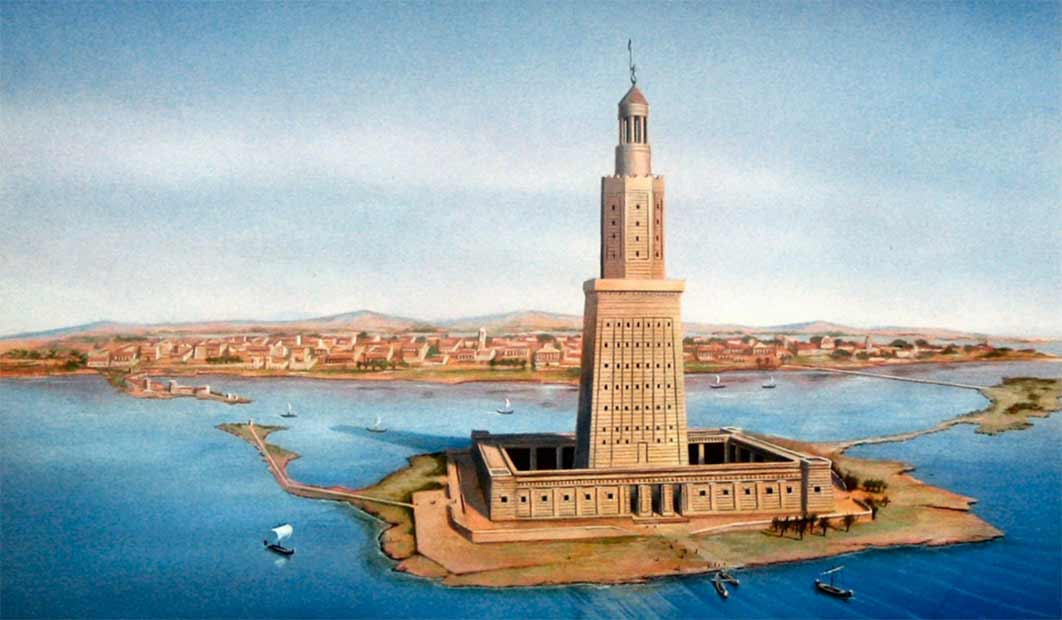
It was roughly as tall as this.

And to celebrate being half-god, Alexander had coins stuck, showing him with the same ram horns his God-father had.
The Egyptian God Ammon, in his ram form.

Alexander, sporting his new ram horns from dad.

Alexander bypassed Jerusalem on his way to the East, but Joel must have been impressed with Alexander’s Greek army. Because Joel’s vision of the End Time includes just that…a mighty army.
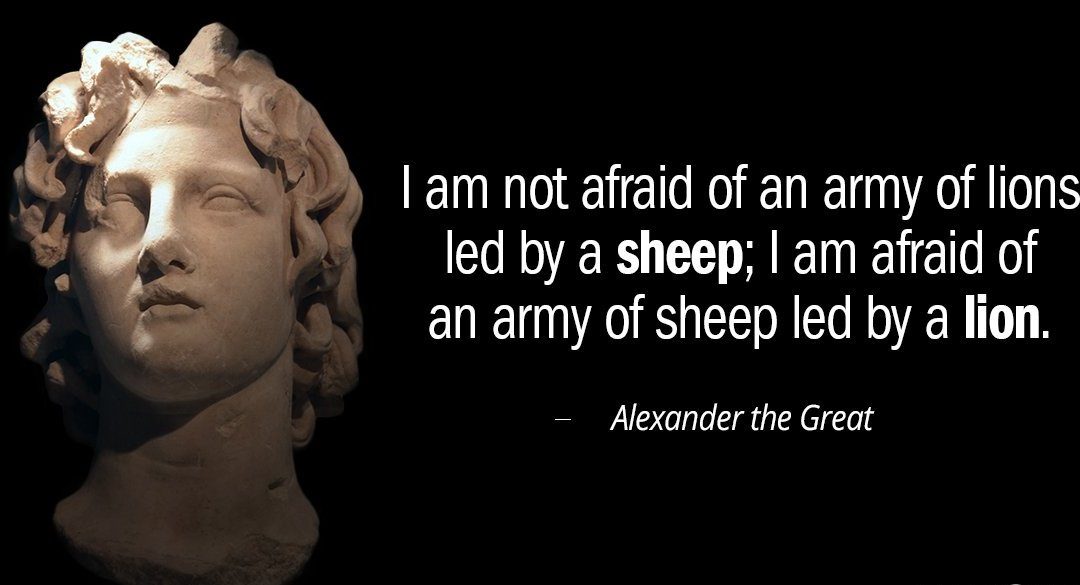
Joel’s End Time army of destruction isn’t commanded by Alexander the Great though, it’s commanded by God himself.
Joel 2:1 “Let all who live in the land tremble, for the day of the Lord is coming. It is close at hand - Like dawn spreading across the mountains a large and mighty army comes…”

In addition to enemies getting stomped by a might army, Joel’s vision includes another longstanding Jewish tradition. While God might judge individuals, he’s definitely judging nations.
Joel 3:1 “In those days and at that time…I will gather all nations…I will put them on trial.”
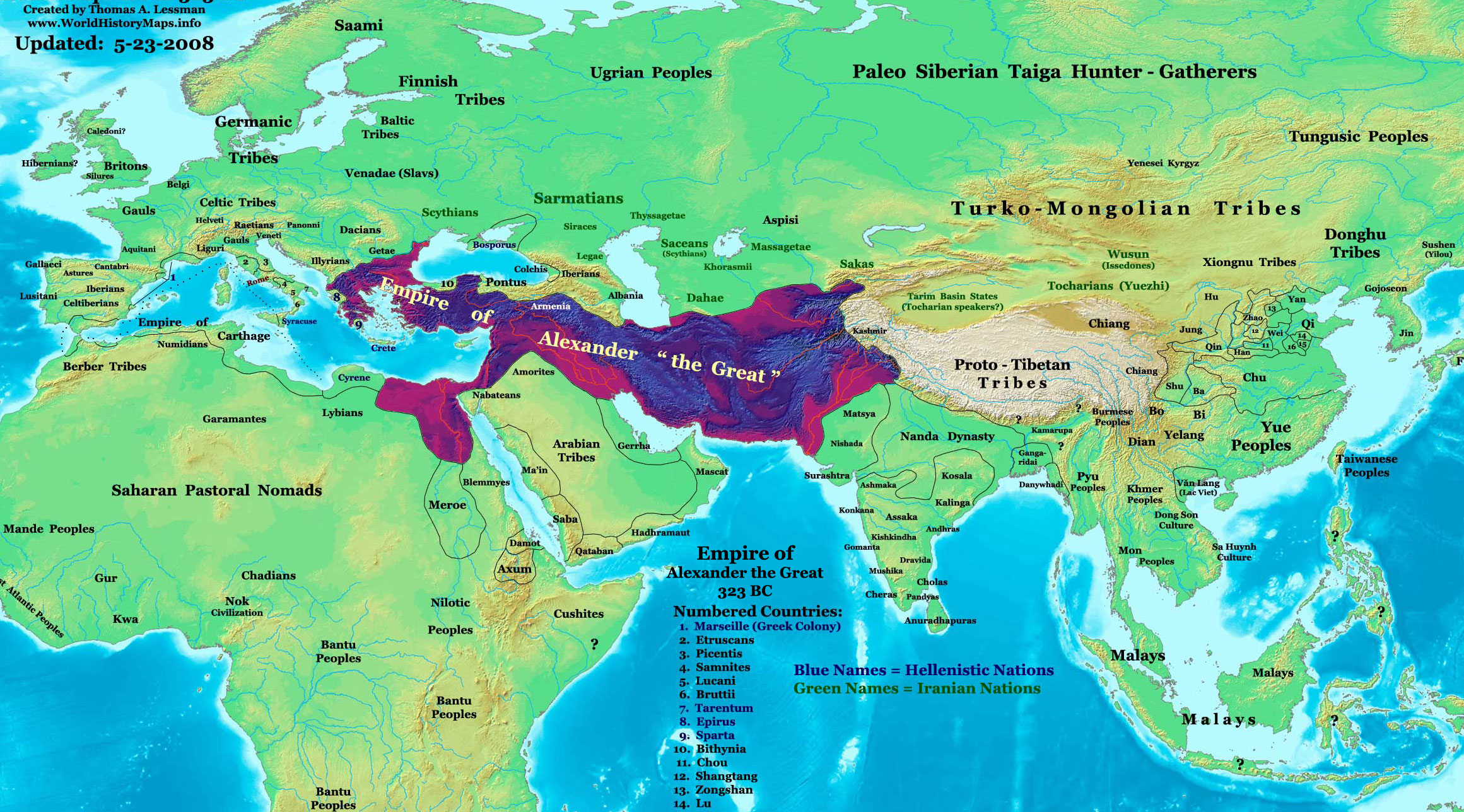
And Joel’s predictions turn those happier days back in Isaiah on their head.
We go from this in Isaiah 2:3
“They will beat their swords into plowshares and their spears into pruning hooks.”
To this in Joel 3:10
”Beat your plowshares into swords and your pruning hooks into spears.”
Gulp

So between Malachi and Joel, we’ve now added Elijah the messenger, a Mighty Army, and a Trial of Nations to the growing End Time prophecy.
Compare the Joel trial with Revelation 3:10
“…the hour of trial that is going to come on the whole world to test the inhabitants of the earth.”
So here’s where we stand, in 300 BCE, and Alexander the Great
850 BCE Obadiah: 1) Everybody loves Jerusalem and Yahweh
740 BCE Amos: 2) Israel gets a permanent home
700 BCE Micah: 3) The Temple is center of world worship and the 10 Tribes return,
630 BCE Zephaniah: 4) The entire world is destroyed with fire by God, but a remnant remains
600 BCE Isaiah-I: 5) 6-Winged Seraphim, God’s throne and train, and a protective canopy over Jerusalem
570 BCE Ezekiel: 6) Multi-faced creatures, eating scrolls, marks on the flesh, 25 Elders, and hellish pits
430 BCE Malachi: 7) Elijah precedes The End
300 BCE Joel: 8) a Mighty Army and a Trial of Nations precedes The End
And that’s where we’ll pick up next time, with Zechariah.



|
|



 to award
the award.
to award
the award.




















































